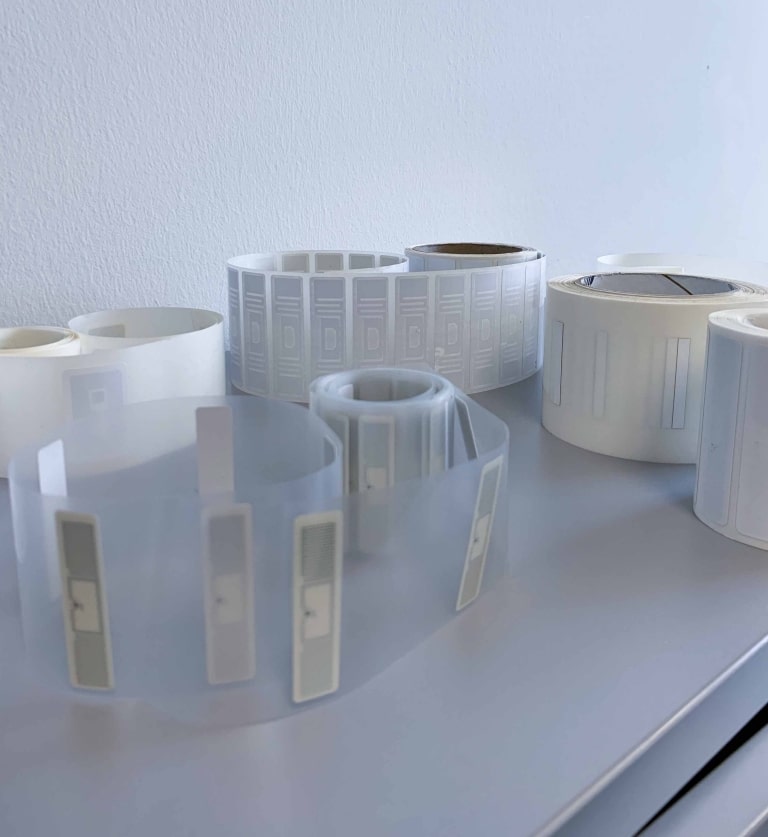CASE STUDY
NCTU RESEARCH -
RFID TAG TESTING
NCTU research on RFID-based On-lens Sensor System
relies on RFID Xplorer
Challenge
The sensor tags, fabricated in a 0.18 µm CMOS process, developed for these applications are customized and have to pass a stringent testing process for safety and privacy. The sensor IC is integrated with electroplating capacitive sensors and a receiving antenna on the contact lens. The sensor IC can be wirelessly powered, communicate with RFID compatible equipment, and perform IOP measurement using an on-lens capacitive sensor continuously from a 2 cm distance. Previously the testing and quality control of the tags used in these applications required multiple different test tools with different testing software. This made the testing process expensive and time-consuming.

Solution
The Department of Electrical and Computer Engineering of National Chiao-Tung University in Taiwan has developed an RFID-based on-lens sensor system for noninvasive long-term intraocular pressure monitoring. The project requires a precise selection of the tag used and total control of the data collected by the tag. Extensive chip design verification was performed by RFID Xplorer conformance testing suite. The overall testing covered tag access tests such as read/write memory test, timing measurement, response strength test over frequencies and power levels, and others.
“With the aid of CISC RFID Xplorer calibration we were able to measure the chips turn-on power characteristics and export the data through CISC RFID Xplorer GUI interfaces accurately,” says Shun-Hsi Irving Hsu, Research scientist at NCTU . “The new testing process is compatible with Gen2 RFID protocol extending the flexibility and reducing the self-developed firmware efforts.
METICULOUS TESTING OF RAIN RFID TAG IN HEALTHCARE APPLICATIONS
Healthcare applications require meticulous tag testing procedures. In the current research, a specified verification process was established to measure the performance of the tag. The researchers used RFID Xplorer tag performance testing software to develop a cyclic redundancy check (CRC-16). In the verification process, they first needed the tag response to be acknowledged and then the read command was used as the command sequence to measure the turn-on power required for the tag.
EXTENSIVE CHIP DESIGN VERIFICATION
For this application, extensive chip design verification was performed by RFID Xplorer conformance testing suite for evaluation of the prototype On-lens sensor. It allows programming instructions to be sent to the RFID tags using standard RFID commands or user-defined commands, following the Gen2 RFID protocol definition. The overall testing covered tag access tests such as read/write memory test, timing measurement, response strength test over frequencies and power levels, and others.
NCTU achieved 50%
faster time-to-market
- Saved up to half the current R&D time to develop customized needed for the application
- Extensive chip design verification test shortened the chip selection process by 20%
- Strengthened knowledge and understanding of the performance of the tag when interacting with the reader
- Reduced the time-to-market of new products by 50% due to the set up of in-house testing capabilities

ABOUT NCTU RESEARCH
National Chiao Tung University is a public research university located in Hsinchu, Taiwan. Established in 1896 as Nanyang Public School by an imperial edict of the Guangxu Emperor, it is one of Taiwan’s leading universities. The mission of the Department is to educate talented individuals in the area of electronics and information technology, and to develop cutting edge technologies for civilian applications. The core technology of the Department focuses on microelectronics material and relevant technologies, devices, systems, and their applications in information, automation, communications, healthcare and medicine.
Related Products













